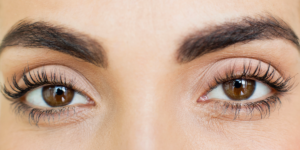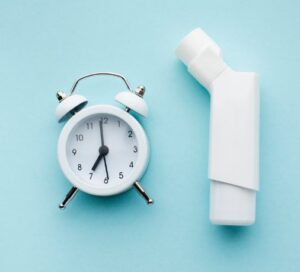
You must identify the sort of insomnia that impacts your day-to-day activities in order to treat it. Insomnia results in restless nights. Learn about the various types of sleep disorders and how to treat insomnia at home to finally get a decent night’s sleep.
The consequences of insomnia
Although insomnia is a simple sleep condition, it can cause chronic or prolonged sleep disturbances that can lead to a troubled existence.
Insomnia may be the cause if you have trouble falling asleep, wake up in the middle of the night, or lie awake for extended periods. Insomnia is the inability to go asleep or stay asleep at night. Although it is a very frequent issue, it can negatively impact your mood, energy level, and capacity for day-to-day functioning. Unexpectedly, sleep disorders are more common in today’s society. The research indicates that approximately one-third of the population is afflicted with the illness at any given time. All age groups are susceptible to it, including kids and teenagers. It’s critical to comprehend the facts around this problem and how it impacts our health in order to manage it.
While anybody can suffer from insomnia, women and older persons are more prone to experience it. You might experience symptoms for days, weeks, or months after the illness starts. Stress, menopause, using specific medications, and mental health issues are among the frequent reasons of sleep disorders. For chronic insomnia, there are therapies for insomnia. Treatment for persistent insomnia works well enough to address sleep-inducing issues. One option is to take an oral medication for insomnia to help you stay asleep in the event of stress or other disturbances.
Which kinds of insomnia could interfere with your sleep?
The most prevalent sleep ailment, insomnia has far-reaching and sometimes dangerous consequences. One form of insomnia that can affect one’s physical and emotional well-being is chronic insomnia. Insomnia comes in various forms, each of which is described below. How long it lasts, how your sleep schedule is affected, and what is causing the sleeping disturbance in the first place.
- Acute insomnia or Adjustment insomnia – Acute insomnia symptoms linked to a life event. It typically occurs when you experience a stressful event, such as starting a new job or the death of a loved one. Stress and anxiety are the underlying factors for adjustment insomnia. According to data, approximately 20% of people worldwide experience acute insomnia yearly.
- Chronic Insomnia – You might have chronic insomnia if you have trouble sleeping at least three days per week for at least one month. Chronic insomnia is of two types: primary and secondary. Primary insomnia is not associated with any other health condition. On the other hand, secondary insomnia is often linked to health problems such as depression, asthma, heartburn, arthritis, cancer, or arthritis. In some cases, using pain medications and alcohol may also give rise to secondary chronic insomnia.
- Onset insomnia – People suffering from onset insomnia experience trouble initiating sleep. The condition either affects you for the short term or can be chronic. Stress, anxiety, and depression are common causes.
- Maintenance insomnia – Individuals suffering from maintenance insomnia often find it difficult to stay asleep or wake up too early. People with maintenance insomnia also have trouble getting back to sleep. The condition is caused by mental health conditions such as stress and depression. This type of insomnia causes you to worry about not being able to fall asleep, which further interferes with sleep.
How to Treat Insomnia?
Therapy is based on the underlying cause of insomnia. Taking over-the-counter sleep aids can assist you in treating acute insomnia. Reducing stress can also improve the quality of your sleep. In the event that your insomnia is chronic, you should take care of any underlying medical conditions that may be interfering with your sleep. Treatment for chronic insomnia or cognitive behavioral therapy (CBT) may be suggested by a medical professional. For insomnia, CBT has been shown to be more beneficial than medication. The ideal sleep aid for insomnia will be suggested by your medical professional.
Numerous forms of sleeplessness might cause disruptions to your everyday routine. Using over-the-counter sleep aids and stress management techniques, you can treat insomnia at home. The illness can raise one’s risk of developing depression, mental illnesses, and other illnesses if treatment is not received. Check with your before beginning any treatment, consult a doctor.

Home remedies for insomnia
Such natural remedies for sleep are especially recommended to patients who want treatment without side effects or drug interactions.
- Drink up: No, we are not talking about alcohol consumption, which can interfere with your sleep. Experts recommend chamomile tea, tart cherry juice, and milk for patients with sleep trouble. Though there is no evidence that any of these nighttime drinks improve your sleep, there’s no harm in trying them.
- Exercise: Physical activity can help improve sleep, though researchers are unsure about it. It is well known that moderate aerobic exercise releases endorphin chemicals that help you keep awake. Physical activity also raises core body temperature, which keeps the body going. If you have difficulty sleeping, ensure you do not work out within two hours of bedtime.
- Try melatonin supplements: Melatonin is a hormone that naturally releases in the brain four hours before we feel a sense of sleepiness. The body’s response to reduce light exposure, which should happen at night, generally triggers it. Exposure to unnatural light prevents the production of melatonin, which can make it hard to fall asleep. The good news is that melatonin supplements are available; make sure you use them under the supervision of a healthcare professional.
- Go dark: You might know the light from a smartphone affects your sleep. But what about your bathroom light? Don’t switch on the lights if you want to visit at night. Prefer using a flashlight if you need to wake up at night as it offers fewer visual disruptions. Furthermore, if you wake up in the middle of the night for a toilet break, it might take up to thirty minutes to drift back off. Experts say this is completely normal.
In summary
A restful night’s sleep is essential for preserving general health. You may have sleeplessness, which raises the possibility of depression, diabetes, and obesity. Your quality of life could be enhanced by making certain changes to your behaviors. Numerous home remedies for insomnia can also be beneficial. It’s time to see a doctor if you’ve tried treatments for insomnia but they’re not helping. Your physician might recommend the greatest sleep aid or anxiety drug.



